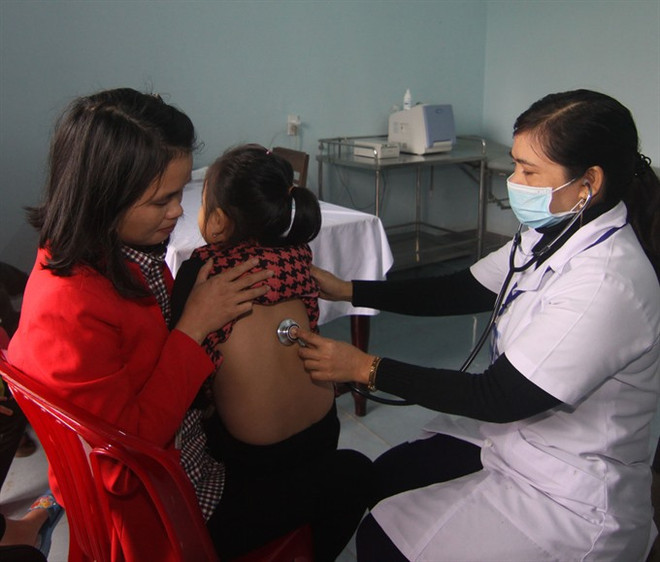The most troubling issue faced by clinics ispatients’ lack of faith due to inadequate medical supplies, equipment andmedical workers’ ability. As of now, the clinics also double as vaccination andnutrition counselling centres for local communities, but when it comes to morecomplicated tasks such as diabetic treatment and cardiac complications theyfall short of people’s expectations.
“On top of training courses to improve localmedical workers’ capacity, we will be sending skilled doctors from provincialand national hospitals to work alongside them,” said Tien.
Also, according to the minister, the ministry isworking on a standardised model for local clinics. Some 26 clinics in eightlocalities across the country are part of a pilot programme to includeacupuncture, massages, dental care, ultrasound scans, diabetic treatment andother services.
“It is our expectation that the clinics will beable to fulfil their intended purpose as the country’s grass-roots level healthcare providers,” said the health minister.
A host of other incentives are being implementedto attract patients to the clinics before heading to larger medicalinstitutions, a problem which partly contributes to overcrowding at provincialand national hospitals. The ministry plans to increase their medical supplies,extend their working hours and pilot a programme to provide medical care athome where needed, as well as create personal health databases for localcommunities.
An important function of local clinics is toserve as gatekeepers in the fight against non-communicable diseases. Improvingthe clinics’ capacity will be an effective solution to reduce the number ofdeaths caused by non-communicable diseases in Vietnam, which total nearly380,000 on a yearly basis, according to PhD. Jun Nakagawa, a representative ofthe World Health Organisation (WHO).
“The lack of health services intended to treatand prevent non-communicable diseases provided by local clinics is playing alarge part in such a high number,” said Nakagawa.
The WHO representative urged the ministry togrant greater financial support and autonomy, identify and focus on a fewpriorities instead of trying to cover too many objectives, make the preventionand treatment of non-communicable diseases a mandatory function for clinics andprovide better financial incentives for medical workers.
During the first stage of the programme, anadditional 20 training courses are to be held at local clinics across thecountry.
Leading experts in various fields will trainlocal medical workers to build health databases, conduct regular health checks,early cancer detection, diabetic treatment, and services for cardiovasculardiseases and senility, especially among elderly patients.
According to a report by the health ministry in2010, the number of local clinics equipped with basic equipment stood at just26 percent, while 43 percent were categorised as “passable” and 31 percent as“poor”. Some local clinics reported they only serve 10-15 patients on a dailybasis.-VNS/VNA





























